What Generation Equality Forum means for a Kenyan
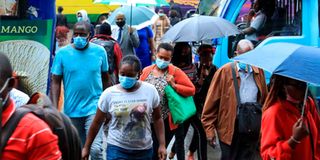
Kenyans go about their business in Nairobi Central Business District. Many are little aware of the Generation Equality Forum and the importance of gender equality.
What you need to know:
- Generation Equality Forum starts in Paris, France today, after the 1995 Fourth World Conference on Women held in Beijing, China.
- President Uhuru Kenyatta and Cabinet Secretary for Public Service and Gender Prof Margaret Kobia will be among the few eminent persons attending.
Today, Generation Equality Forum starts in Paris, France. This is a historical women conference, in this decade, after the 1995 Fourth World Conference on Women held in Beijing, China that birthed the Beijing Declaration and the Platform for Action.
The declaration is a women’s empowerment roadmap outlining 12 strategic areas of focus including ending poverty among women and violence against them; ensuring their inclusion in leadership and decision making, promoting their human rights and safeguarding their rights in the media as well as fostering girl-child development.
The France forum, attended by heads of State and government, representatives from international organisations, civil society, the private sector and youth organisations, the leaders and feminists will be reflecting on progress made 26 years later, and conclude with concrete actions going forward.
President Uhuru Kenyatta and Cabinet Secretary for Public Service and Gender Prof Margaret Kobia will be among the few eminent persons attending the forum in-person, while a multitude of feminists around the world will join virtually.
Mr Kenyatta is particularly expected to state his commitments in ending gender-based violence having committed Sh2.3 billion towards the fight. He is also to brief the leaders of progress made towards achieving his target of eliminating female genital mutilation (FGM) by next year.
The forum will involve about 90 events featuring 500 panellists. Its major agenda include deliberations on Global Acceleration Plan for Gender Equality and joining forces to fight for gender equality and other complementary types of activism such as anti-racism and advocating for rights of all communities related to lesbians, gays, transgender and queer community.
Lack of knowledge
It will also look at the role of young feminists in promoting gender equality as well as commitments made by other stakeholders other than governments and civil society towards creating an equal world.
But what is it for a woman and man in Kenya? Of worry is that Kenyans are little aware of the forum and the importance of gender equality. Based on a survey sampling Nairobi residents, men and women steered clear lack of knowledge of the women’s conference while others were of the view that “the government was spending money on misplaced priorities instead of using it to pay fees for orphaned children and those from poor families.”
Nevertheless, we spoke to some stakeholders and these are their views:
Dr Jennifer Riria, chairperson, African Women Leaders Network – Kenya Chapter and Group Chief Executive Officer, Echo Network Africa
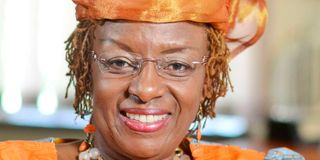
Dr Jennifer Riria, chairperson African Women Leaders Network – Kenya Chapter and Group Chief Executive Officer Echo Network Africa.
“Time has come for the global population to think about fairness, justice and equality.
The forum provides us with the platform to look at where we are today and what we are to do in the future. So, the intergeneration equality forum will address issues cutting across economic, leadership and social justice and fairness. The old and young people should be asking themselves how countries are performing on the equity and equality front. For instance, how are resources being shared and utilised?
This event will be very specific. The difference between it and the 1995 Beijing Conference, which I attended, is that we know where we are now. All we need is to put strict measures and measurable criteria of where we want to be in future. In 1995, we signed agreements whereby governments confirmed gender equality is necessary.
Now, it is about articulating what the young and old men and women need to do, together, to achieve fairness and justice.”
Dan Shieshie, founder of a men rights organisations, DanShieshie Foundation
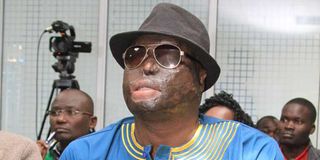
Mr Dan Shieshe Matakaya the founder of DanShieShie Foundation.
“The discussions should also belabour on rights relating to men. They should not be reserved to only women. Men are being left behind. We agree that men are dominant in executive leadership but let’s be honest, there has been a tremendous progress in narrowing down the gap. And therefore, we cannot say, they are still excluded in leadership. Actually, there are many women in middle-level leadership. Men will be left behind if all discussions focus on women and that is a danger we must avoid.
The fact that GBV is going to be on the agenda, calls for discussions and commitments on ending violence against men too.
Janet Mbugua, founder, Inua Dada (one of the organisations selected as amplifier of the forum)
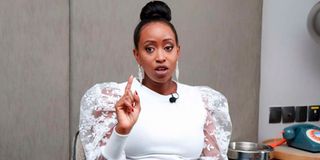
Janet Mbugua, Founder Inua Dada Foundation.
“It’s such a landmark moment 26 years since the Beijing Declaration. The declaration opened the door for women’s rights in a big way. After the conference, laws on sexual offences were designed, passed and implemented. There was a lot more access to education for the girls and also leadership positions for women in different parts of the world opened up. The conference was a stepping stone towards achieving gender equality.
So, we are at 26 years and we are asking ourselves, okay, there has been progress but why are we still grappling with GBV, few women in leadership, FGM and child marriage? Where are the gaps?
It is an important moment for us to take stock of the progress made because people’s lives depend on the policies designed to end GBV. If we don’t have those policies, we don’t have safe houses, we don’t have GBV survivors’ fund, we are compromising on the lives of people because people are literally dying, especially women and girls.
Since 2014 when I started Inua Dada, I have seen a lot more of male involvement in this conversation on gender equality. Men have realised that they are equally affected by issues that affect women.
We really need to push hard for more progress and I know leaders and Presidents around the world will be making commitments. But what happens next? Commitments are not enough. What about following up on implementation?
As citizens, let us avoid being on the side-lines. We should also be involved in our own ways in advancing gender equality.”
Onyango Otieno, Founder, AfroMasculinity
“Men should be concerned of the ongoing at the conference because they co-exist with women and girls and they have to be cautious of the rights of other people. Things are also changing. We are no longer living in a society of only binary people.
There are other existing identities whose rights have to be respected too. We live in predominantly patriarchal society and many men don’t understand how patriarchy also affects them. In fact, it hurts them first before it hurts women
There is a lot of work to be done to show how patriarchy affects men as individuals, and collectively.”
Cosmas Mutua, Director of a women and girls’ empowerment organisation, Hope-in Life
“Gender equality is very key and it’s not about fighting for power, but about ensuring men and women have equal opportunities and rights .Once we have an equal society, GBV will be an issue of the past because every man and woman will stand up against the violence.”
Sadia Hussein, FGM survivor
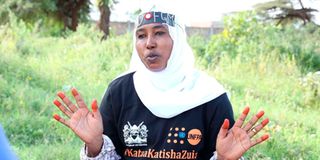
Sadia Hussein, an FGM survivor says Generation Equality is about men and women understanding their role in advancing gender equality.
“Generation Equality is about men and women understanding their role in advancing gender equality.
For instance, when we talk about women empowerment, men feel threatened. They assume that women will take over their roles in the society. But when a woman is empowered, a society is empowered. Anywhere in the world, women form part of the communities and they engage in various activities that drive a country’s economy.
When we educate women about their rights, it does not mean a beginning of war with men. We are simply telling them that a better society is created through collaborations between men and women.
In the forum, there will be discussions about the bodily autonomy where FGM falls. We expect that at the end of the conference, we will have reinforced partnerships that would steer attainment of President Uhuru Kenyatta’s commitment to end FGM by 2022.
Vivienne Taa, Coordinator, Orange Democratic Movement Young Women Caucus
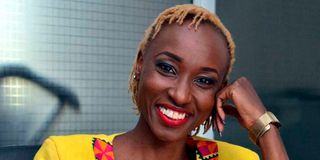
Orange Democratic Movement (ODM) Young Women Caucus Coordinator Vivienne Taa.
“Unequal pay, childcare and unpaid labour will feature in the forum. Women for instance, are spending many hours in childcare and unpaid work, yet these roles are unrecognised as crucial in driving a country’s development. For instance, a survey done in 2014 by International Fund for Agricultural Development found that that on average, in Kenya, women worked 15 to 17 hours, a day, while men worked for six to seven hours.
Women are carrying the heavier burden of childcare and this has a significant influence on unequal pay. Women will have to stay out of work for three months while a man has just two weeks of paternity leave. And because of these disparities, women are excluded from decision making spaces.
So, the forum is an opportunity for us to talk about these issues and challenge governments to come up with concrete plans to tackle them.”
António Guterres, Secretary General, United Nations
“A shadow pandemic of violent misogyny has thrived alongside Covid-19. This week at the #GenerationEquality Forum, I will urge leaders to join in a global initiative to end the violence and fear that threaten so many women and girls,” he said on his Twitter account, Tuesday.
Phumzile Mlambo-Ngcuka, Executive Director, UN Women
Ms Mlambo also tweeted: “It’s time to speak out on gender equality and #ActForEqual to achieve it. At the #GenerationEquality Forum in Paris from June 30 to July 2, world leaders and activists will launch concrete and ambitious actions for gender equality.”





